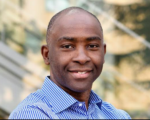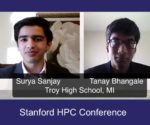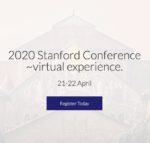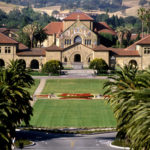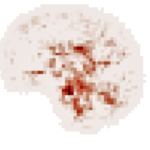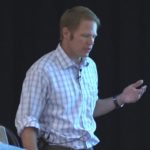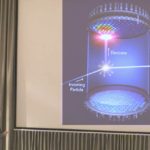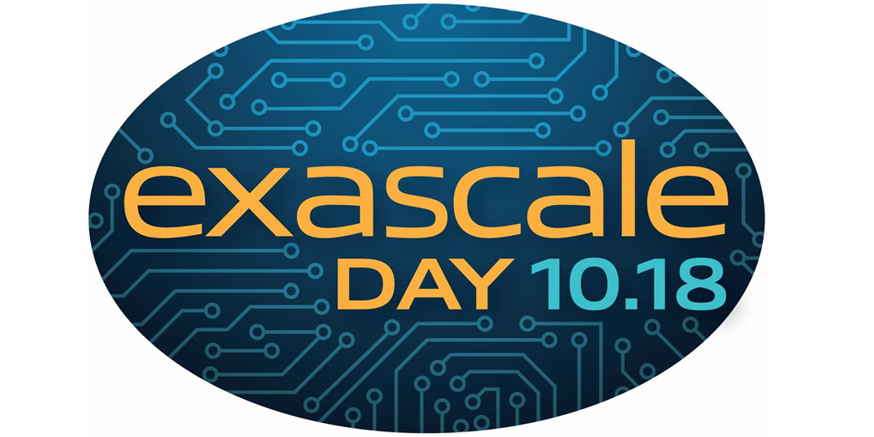A good spring moring to you! Here’s a rapid (6:09) route through recent news from HPC-AI, including: new supercomputers installed at Los Alamos and France-CEA, Stanford AI Index Report released on the state of AI….
HPC News Bytes 20240422: New HPC Installs, the State of AI, Bitcoin Halving, Argonne-UICs’ Crabtree Institute
Multicore Processor Design Pioneer Prof. Kunle Olukotun Receives ACM-IEEE CS Eckert-Mauchly Award
New York, June 7, 2023 – ACM, the Association for Computing Machinery, today announced that Kunle Olukotun, a professor at Stanford University, is the recipient of the ACM-IEEE CS Eckert-Mauchly Award for contributions and leadership in the development of parallel systems, especially multicore and multithreaded processors. In the early 1990s, Olukotun became a leading designer of a new kind […]
High Schoolers from Michigan Step Up to High Performance Computing at Stanford
In this video from the Stanford HPC Conference, Surya Sanjay and Tanay Bhangale from Troy High School in Michigan describe how their proposal on combatting prion-based disease resulted in their first experiences with HPC at the Stanford High Performance Computing Center. “Using a model of the infectious murine prion and many mutagenized variants of the benign murine prion as PrPX, created with Rosetta’s ab initio software, we plan to perform molecular dynamics (MD) simulations with GROMACS 2020 to determine the success of models based on the described criteria.”
Registration Opens for Stanford HPC Conference Virtual Event
Registration is now open for the Stanford HPC Conference. The two day ‘condensed’ agenda combines thought leadership and practical insights on HPC, AI, Data Science and much more. The virtual event takes place April 21-22. “The Stanford High Performance Computing Center in collaboration with the HPC-AI Advisory Council invite you to join the annual Stanford Conference as an entirely virtual experience.”
Job of the Week: Research Computing Specialist at Stanford University
Stanford University is seeking a Research Computing Specialist in our Job of the Week. “As a Research Computing Specialist, you will draw on both deep technical knowledge and interpersonal skills to facilitate and accelerate academic research at the Stanford University Graduate School of Business (GSB). You will join a team of research analytics scientists, data engineers, and project managers on the Data, Analytics and Research Computing (DARC) team to support research at the GSB. Your clients will include GSB faculty and collaborators who are drawn from a broad spectrum of academic backgrounds, research interests, methodological specialties, and technical backgrounds. As a Research Computing Specialist, you will bring the ability to understand the ecosystem of research computing resources and partner with researchers to use these resources effectively. You should enjoy working directly with researchers, and be equally comfortable introducing novices to research computing systems and helping advanced users optimize their workflow.”
Using Ai to Automatically Diagnose Alzheimer’s Disease
Researchers from Stanford University have developed a deep learning based system that can automatically detect Alzheimer’s disease and its biomarkers from MRIs, with 94 percent accuracy. “Our method uses minimal preprocessing of MRIs (imposing minimum preprocessing artifacts) and utilizes a simple data augmentation strategy of downsampled MR images for training purposes,” the researchers stated in their paper.
Video: The Legion Programming Model
“Developed by Stanford University, Legion is a data-centric programming model for writing high-performance applications for distributed heterogeneous architectures. Legion provides a common framework for implementing applications which can achieve portable performance across a range of architectures. The target class of users dictates that productivity in Legion will always be a second-class design constraint behind performance. Instead Legion is designed to be extensible and to support higher-level productivity languages and libraries.”
Video: Dark Matter – Detecting Gravity’s Hidden Hand
“One of today’s great challenges in physics is to observe individual dark matter particles coming in from the galaxy and striking particles on Earth. This talk presents the evidence for dark matter and introduces one of the most ambitious efforts to discover interactions of dark matter particles, using tons of cryogenic liquid in a deep underground laboratory.”


